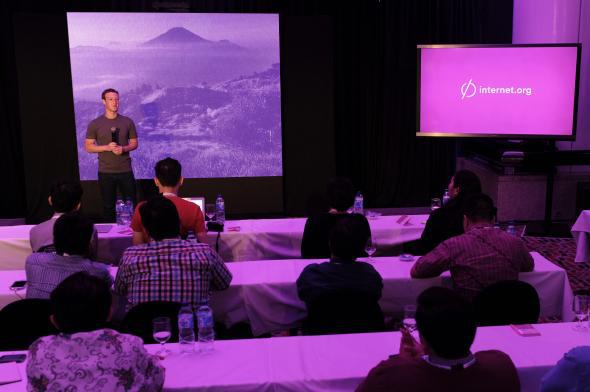Facebook’s Internet.org data access program finished its first year in July. And though the project has faced criticism over its implications for net neutrality, it seems to be attempting to navigate the situation and move forward. So there’s probably no better way to show progress than to straight up wrangle a satellite.
On Monday Facebook and French Internet service provider Eutelsat Communications announced a collaboration to bring free Web connectivity to a large portion of sub-Saharan Africa. Internet.org and Eutelsat will use Spacecom’s AMOS-6 satellite, which is scheduled to launch into orbit in late 2015. The goal is to begin offering free Internet.org coverage to the region in the second half of 2016.
The announcement explains:
The two companies will utilise the entire broadband payload on the future AMOS-6 satellite and will build a dedicated system comprising satellite capacity, gateways and terminals. In providing reach to large parts of Sub-Saharan Africa, Eutelsat and Facebook will each be equipped to pursue their ambition to accelerate data connectivity for the many users deprived of the economic and social benefits of the Internet.
The partnership makes sense because Eutelsat has experience implementing satellite broadband in many regions like Europe and the Middle East, but the language of the press release makes it pretty clear that everyone is out for themselves and ready to “pursue their ambition[s]” in this collaboration. Eutelsat gets to expand its offerings and lure what it calls “professional users” while attempting to generate goodwill by partnering with Internet.org. And for Internet.org it’s an opportunity to piggyback on another company’s expertise, while expanding and growing its user base.
The satellite hasn’t even launched yet, and the goal to begin offering service is about a year away, so there’s room for plenty of problems and delays, but it seems like a reasonably solid plan. Meanwhile Google continues to chase balloons around the sky in an alternative attempt to cover the Earth in broadband.
